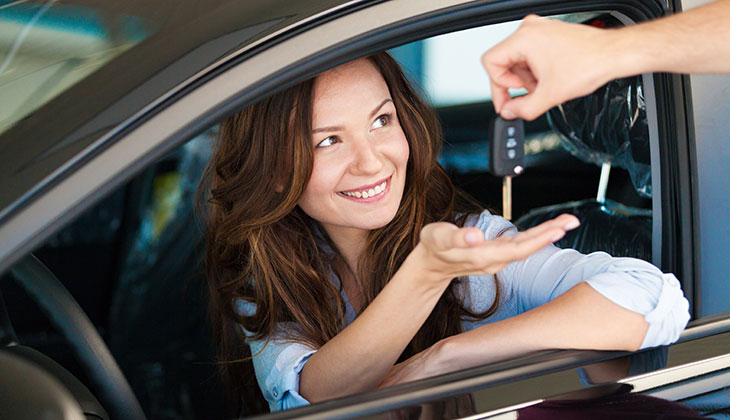Buying cars - beware the scammers!
Chris Hogan, 1st September 2017, Household
There's an increasing danger we face when buying a car - scammers who are after your money. This is different to someone just trying to offload a dodgy motor - often the car won't exist at all and it's pure fraud.

That doesn't mean that the problem of buying a car that's been badly repaired has gone away - you do still need to be wary of the car itself. But this article is about fraud - the scams people are using to try and separate you from your money.
These scams are being tried on more and more, when you're buying a car from an independent seller.
Deposits
It's reasonable to be asked for a deposit if you've seen a car and agreed a price, but then have to arrange the money and collection for a few days later. The deposit will often be non-refundable, to cover the seller's costs if the sale falls through.
A number of cons rely on this and there are a number of variations. For example, thieves have been known to put hire cars up for sale, collect deposits from as many 'buyers' as possible, then return the car, keeping all the deposits.
The cheap car lure
With the internet making global fraud easier it's not unknown for people to advertise non-existent cars at very low prices. They'll produce a list of plausible excuses as to why the car can't be viewed - the car or the seller is usually working abroad.
The 'seller' will keep up a dialogue by email to gain trust and then ask for a sizeable deposit to hold the car as "there are so many people interested in it." Of course, the minute the deposit is paid, all communications stop. You might think that's far-fetched and you'd never fall for it, but a BBC consumer programme featured a couple who were persuaded to pay a deposit of £4,000, which they never saw again.
The third party scam
A development of this is to try to get buyers to pay the price of the vehicle to a third party. You'll be told that when the car has been delivered to you and you say it's ok, the third party will release the money to the seller.
Again there will be excuses as to why you can't see the car - usually it's on a shipping container on the way back from a country where the seller has been working. Often the seller will be claiming to be selling it on behalf of a family member who's living abroad. The vehicle will nearly always have been advertised at a low price because of the inconvenience of you not being able to view the car.
Too late
Of course the car won't arrive but your money will have been taken from the supposedly safe third party within seconds of you making the deposit.
So be very wary of cars advertised on sites like Autotrader that are well below the price of other cars of a similar age and mileage and particularly those where an email address has been included on the images of the car and you're told not to phone the number on the ad.
Cars with finance
A well known fraud is to sell cars with outstanding hire purchase payments on them - something that can usually be avoided by carrying out a vehicle check and comparing the car's documentation with it (that can catch out cloning as well).
But what some sellers are now doing is admitting that there's outstanding finance and say that it'll be ok, because they will carry on paying it. Quite apart from that putting you in a very dodgy position - how do you know they will carry on paying it - many people aren't aware that it is actually illegal.
If a car has outstanding finance on it then it is the property of the finance company, not the seller. So it's illegal to sell the car to anyone and even if that's not spotted, if the payments do dry up, the finance company will repossess 'your' car.
How can you stay safe?
Four of the larger vehicle selling websites in the UK - Autotrader, eBay, Motors.co.uk and Pistonheads - have joined forces under an organisation called the Vehicle Safe Trading Advisory Group (VSTAG) to combat fraud around buying and selling cars, particularly online fraud.
Follow these hints and tips and you should be able to steer clear of people trying to defraud you:
- Ask to see the V5 and MOT and check that the number plates and VIN numbers match the documentation.
-
Be particularly wary if the address on the V5 doesn't match where you're viewing the car.
Check contact details - be wary of dealing purely by mobile or email.
-
Never pay a deposit or part-payment without having seen and driven the car.
-
Never pay with Western Union or wire money abroad.
-
Carry out a vehicle check on any car you're considering. It will cost money but in the long run save you more - including time and stress.
Finally: remember that if a deal seems to good to be true, it is. Walk away - there are plenty of other cars to choose from.